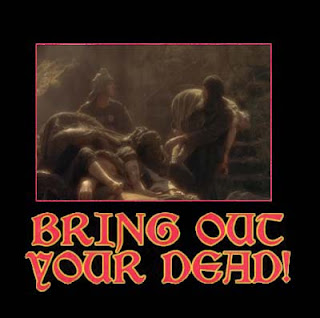Film Week at the Philharmonic. 2013.

Some will bristle at the premise: why pay a pretty penny to see an old film with live music? It's a question that charts the gulf between cinephiles and audiophiles. To the film maven, movies are sculpted, perfected time, trimmed into a narrative shaped in sight and sound. Its finished, recorded status is part of its essence. Yet for most of music's history, it lived only in awakening from the hibernation of the score. Film's mix of sight and sound, though, bridges the cinematic and musical worlds to permit a synthesis of film's completed visual worlds with the frisson of music's fleeting vitality.
The marriage is not only an ideal one of virtues, but one of supplementing limitations. On the one hand, pure musical expression tends toward the abstract while even opera and musical theater are limited by the demands of the sets. On the other, film's recorded nature can make it rigid and subject it to the vicissitudes of production circumstances which aren't ideal.
Film Week at the New York Philharmonic was an exploration of these features of music and film, pairing films with live performances of their scores. In the first performance, Alec Baldwin hosted us through selections from six films from Alfred Hitchcock with Constantine Kitsopolous making his NY Philharmonic debut conducting Murray (
To Catch a Thief), Herrmann (
Vertigo and
North by Northwest), Tiomkin (
Strangers on a Train and
Dial M for Murder) and Gounod (
Marche funebre d'une marionnette.) What strikes first is the full, almost voluptuous, dimension of the music. Perhaps I noticed this more because it's not music I'd ever heard these scores in person, but it was as if hearing many of them for the first time. From the swooning Wagneresque
Scène d'amour of
Vertigo to the hefty swagger of Gounod's march, the music moved with an energy it imbued to the visuals and narrative.
The Carousel Scene from
Strangers on A Train is a good example of a scene coming to new life with live music. Here, composer Dimitri Tiomkin mixes a dramatic symphonic score with carnival music for a shocking mix of tone, timbre, meter, and style as two men brawl over a runaway carousel. The shot is also ingeniously composed, with visual activity along three axes of the frame, and alternations among them. What came across most from the night of Hitchock, though, was the multiplicity of styles across the films, a directorial feat our host aptly sketched for us. Hitchcock reached across styles and forms to find the precise musical complement to the scene, with the result of almost indivisible expressive impact. Whether it's the swaying violins and crashing brass of Vertigo's theme, the playfully scampering tune to which Cary Grant outsmarts his pursuers in
To Catch a Thief, or Hermann's bravura narrative finale to
North by Northwest, we hear brilliant music incorporated to visuals, with excruciating editorial attention to pacing, into a thrilling whole.
If the theme of the Hitchcock night was drama, the theme to the screening of Stanley Kubrick's
2001: A Space Odyssey was rhapsody. Not in the music, of course, but in the music's role in shaping by sheer force Kubrick's contrasting four episodes of grandeur. While within scenes we see complementarity between sight and sound, the heroic grandeur of the monolith's arrival and the waltzing grace of space travel, it's the features of music qua music, the naturalism of its shapes and rhythms, which persuade us that the episodes form an equally natural, that is true, whole, even as they progress into increasingly distant realms.
Here too the live music brought the visuals to life. The resonant, sonorous echoes of
Also sprach Zarathustra reverberated as motif like never before throughout the film. Most of all, the tortuous dissonance of Ligeti's
Kyrie disoriented with the clarity of the inner parts.
 |
Alex North's unused score to 2001,
on display in Avery Fisher Hall. |
I can't pass over a curious non-musical feature of the
2001 performance, though, which was the voluminous humor Friday night's audience found in the film. Fighting monkey's? Chuckle-worthy. The death of an astronaut? Outright funny. HAL bargaining for his life?
Hilarious. Maybe people feel the need to participate and so they ooh, ahh, and laugh. Maybe they have a sardonic sense of humor. Maybe they just missed out on the terrible grandeur of the movie. In any event, it felt quite unwarranted. During the credits the audience adopted the honorific of applauding the notables in the roll, a gesture which quickly degenerated into clapping ironically for people who weren't famous. A sophomoric end to a transcendent experience.
Nonetheless, a splendid night: fine performances, an enlightening synthesis of mediums, and a vindication of live performance.
 Some will bristle at the premise: why pay a pretty penny to see an old film with live music? It's a question that charts the gulf between cinephiles and audiophiles. To the film maven, movies are sculpted, perfected time, trimmed into a narrative shaped in sight and sound. Its finished, recorded status is part of its essence. Yet for most of music's history, it lived only in awakening from the hibernation of the score. Film's mix of sight and sound, though, bridges the cinematic and musical worlds to permit a synthesis of film's completed visual worlds with the frisson of music's fleeting vitality.
Some will bristle at the premise: why pay a pretty penny to see an old film with live music? It's a question that charts the gulf between cinephiles and audiophiles. To the film maven, movies are sculpted, perfected time, trimmed into a narrative shaped in sight and sound. Its finished, recorded status is part of its essence. Yet for most of music's history, it lived only in awakening from the hibernation of the score. Film's mix of sight and sound, though, bridges the cinematic and musical worlds to permit a synthesis of film's completed visual worlds with the frisson of music's fleeting vitality.












